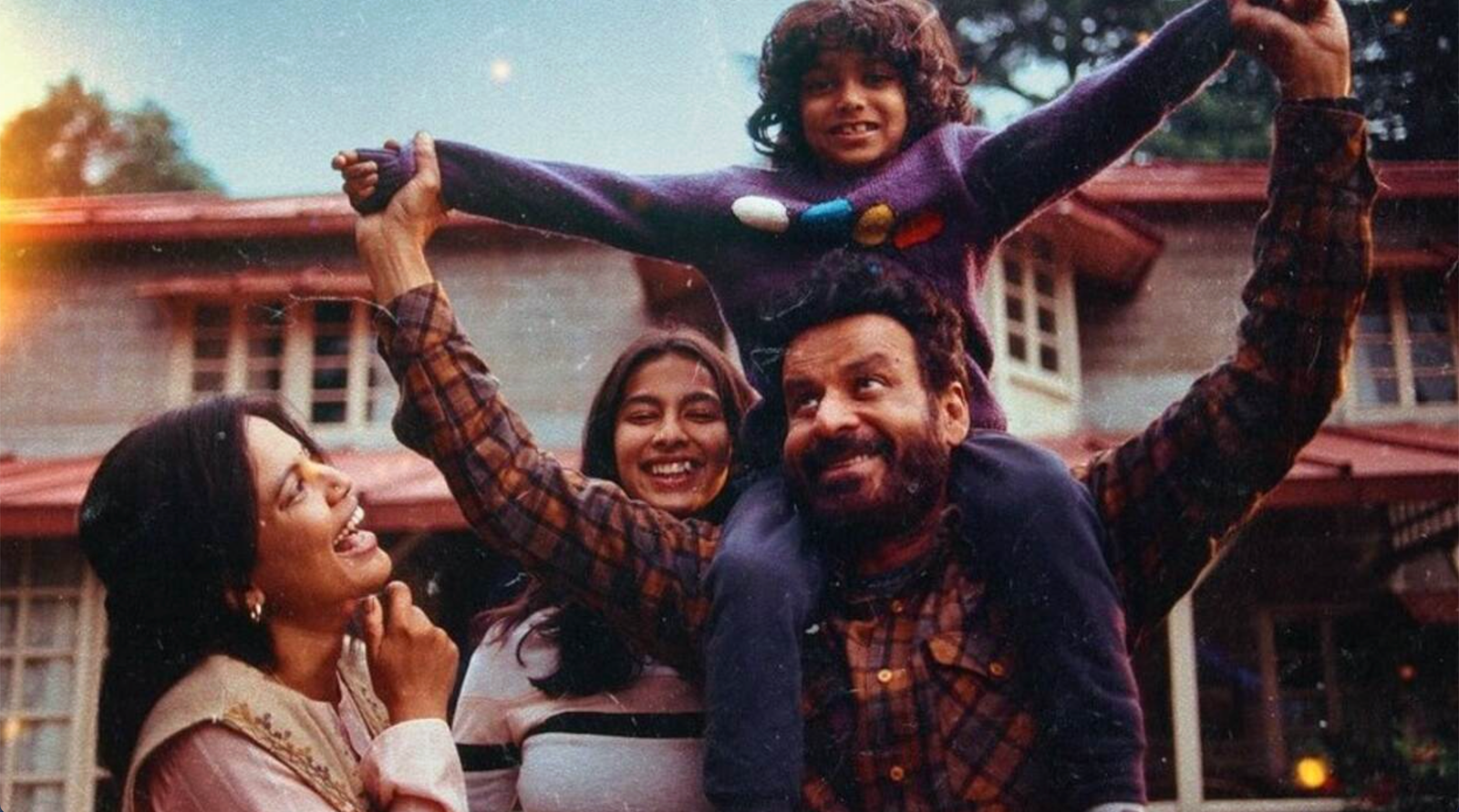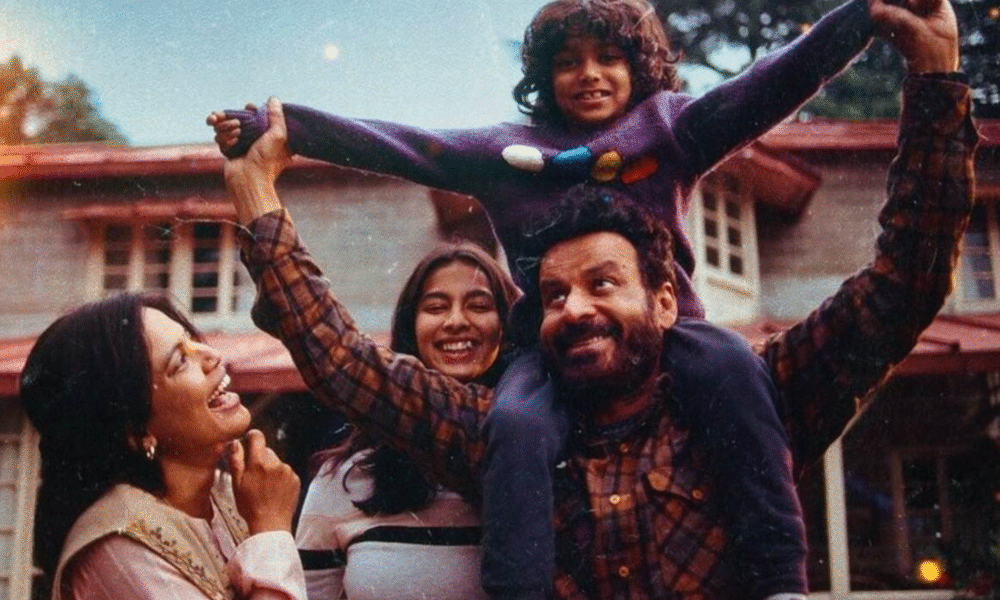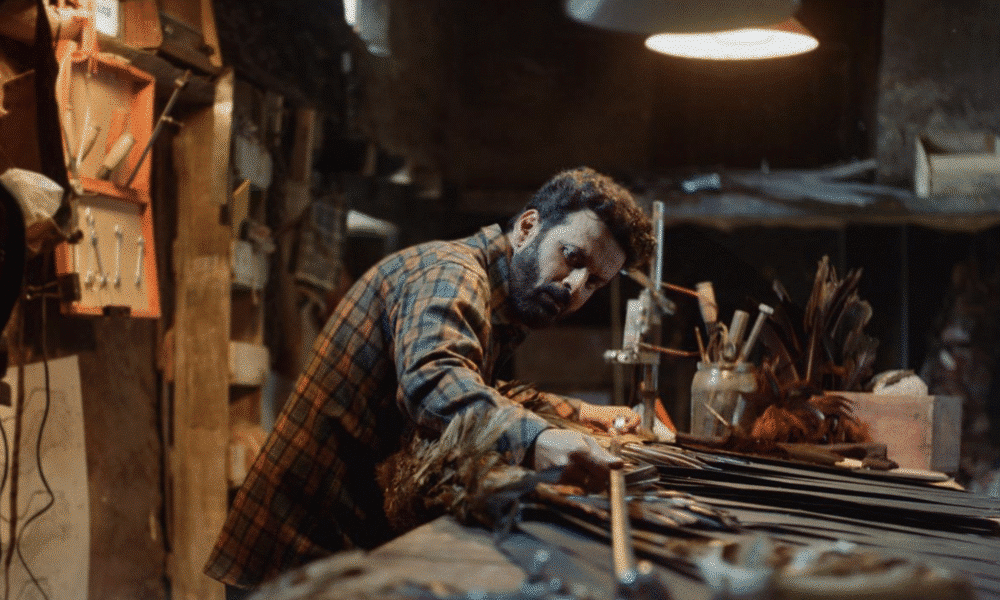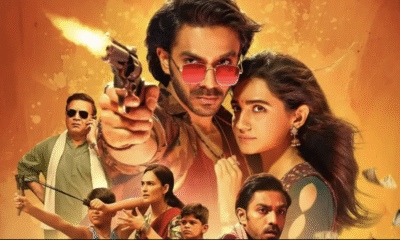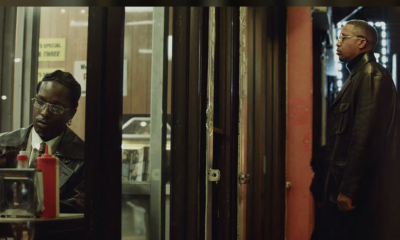Bollywood
‘Jugnuma: The Fable’ — Manoj Bajpayee Shines in Raam Reddy’s Haunting Tale of Hubris and Guilt
Currently playing in theaters, Raam Reddy’s fable leaves us with a haunting question: when the fires of fear and guilt burn, can wings of privilege ever keep us aloft?
In Jugnuma: The Fable, filmmaker Raam Reddy crafts a cinematic parable that resonates far beyond its Himalayan setting. With Manoj Bajpayee anchoring the narrative in a career-defining performance, the film unfolds as a meditative exploration of class, hubris, and the fragile boundaries between belonging and trespass.
The Story
The story centers on Dev (Manoj Bajpayee), a man who presides over a vast Himalayan orchard inherited from colonial masters. While Dev considers himself self-made, his authority rests on inherited privilege and his control over the local workforce. In an extraordinary flourish of magical realism, Dev fashions wings for himself and soars over his estate, surveying the land and its people from above—both literally and metaphorically detached from the realities of those who sustain him.
This harmony unravels when mysterious fires begin consuming his prized cherry blossom orchards. What begins as a natural mystery soon becomes a tense allegory. Dev suspects his workers of betrayal, violence intrudes into his household, and the trust that once bound landowner and laborer fractures. A devoted manager (Deepak Dobriyal), a suspicious official, and agitated villagers amplify the conflict, each layer peeling back the costs of unchecked pride.
Cinematic Craft
Raam Reddy’s narrative, told with a “once-upon-a-time” quality, resists easy categorization. Instead of blunt messaging, the director whispers his perspective through painterly visuals and poetic soundscapes. Shot on 16mm film, Sunil Borkar’s cinematography lends the movie the texture of memory—images that feel both timeless and weathered. Nithin Lukose’s evocative sound design heightens this effect, immersing audiences in an atmosphere that recalls both Gabriel García Márquez’s magic realism and M. Night Shyamalan’s fables.
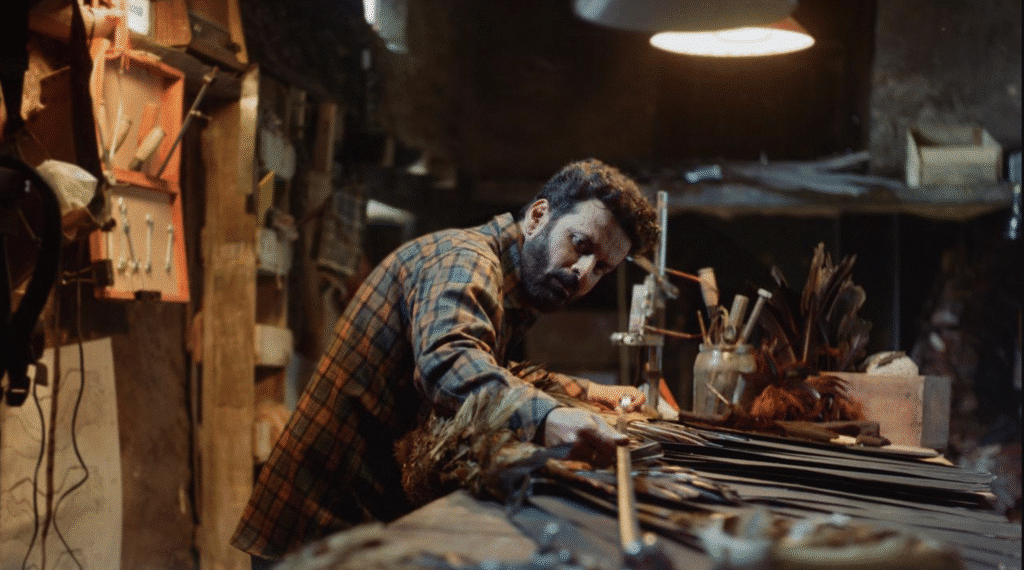
Manoj Bajpayee in Raam Reddy’s ‘Jugnuma : The Fable’
At home, Dev’s family provides emotional grounding: Nandini (Priyanka Bose), a wife steeped in faith; a teenage daughter, Vanya (Hiral Sidhu), curious about freedom and spirituality; and a young son, Juju. While they gaze at the stars, they overlook the fireflies displaced from their garden—a potent metaphor for uprooted communities and environmental loss.
As fires rage and suspicions mount, Raam Reddy questions who truly belongs to the land—the supposed masters or the people rooted in its soil. Tillotama Shome delivers a poignant turn as Keshav’s wife, whose bedtime tales about ethereal fairies reclaiming creatures of their kind mirror the film’s central conflict.
View this post on Instagram
Themes and Symbolism
The brilliance of Jugnuma lies not only in its allegory but also in Manoj Bajpayee’s performance. He embodies Dev’s descent from quiet superiority to panicked fragility with nuance, never raising his voice yet commanding the screen with authority. His eventual unraveling—when his “wings” of authority begin to fail—feels both tragic and inevitable.
Running at 118 minutes, the film is deliberately paced, designed for viewers willing to surrender to its meditative rhythms. For audiences fatigued by formulaic spectacle, Jugnuma: The Fable offers a reminder that cinema can provoke reflection as much as entertainment.
Currently playing in theaters, Raam Reddy’s fable leaves us with a haunting question: when the fires of fear and guilt burn, can wings of privilege ever keep us aloft?


